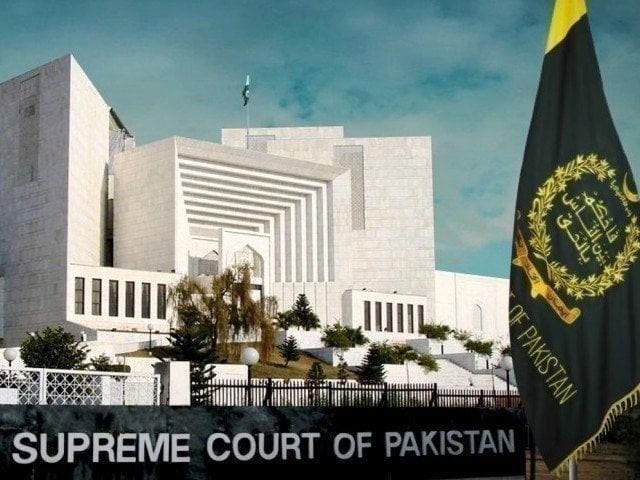Evidence of widening SC rift pours in
Experts say sparks flew after reserved seats judgment

Ever since the July 12 judgement in the reserved seats case, the friction between the Supreme Court's senior judges has increased. It was sparked when two judges of the committee, formed under the Supreme Court Practice and Procedure Act 2023, modified the minutes of the meeting which considered the schedule of the murder case of the late journalist Arshed Sharif.
Two members of the committee, Justice Syed Mansoor Ali Shah and Justice Munib Akhtar, were of the view that the case was heard over eight hearings by a five-member bench, which was constituted by a former honourable chief justice vide administrative order dated 6/12/2022 (prior to the promulgation of the Supreme Court Practice and Procedure Act 2023).
The bench comprised of ex-Chief Justice Umar Ata Bandial, Justice Ijazul Ahsan, Justice Mazahar Ali Akbar Naqvi, Justice Jamal Khan Mandokhail and Justice Muhammad Ali Mazhar. Considering Justice Jamal Khan Mandokhail and Justice Muhammad Ali Mazhar had extensively heard the case, it would have been appropriate that the former heads the bench and that the seniormost judges, after Justice Muhammad Ali Mazhar, be included on the bench, namely Justice Ayesha A. Malik, Justice, Athar Minallah and Justice Syed Hasan Azhar Rizvi.
The debate continues as to why two members were compelled to modify the minutes of the meeting. Sources told The Express Tribune that the minutes of the August 1 meeting were uploaded on the website without the approval and signature of two other members of the committee. However, a senior official says that generally, the minutes are recorded by the secretary/SC registrar and approved by the chairman/chief justice of Pakistan.
Now it is not clear as whether the modification in the minutes has been approved by all or two members of the committee. This is not the first incident wherein differences between the SC judges have come to the fore since the July 12 order which allowed independent candidates to join the former ruling party of Pakistan Tehreek-e-Insaf.
"It is extraordinary to see instances of one-upmanship and differences of opinion emerging on meeting minutes. I think there was much more than just reserved seats numbers for the PTI riding on the July 12 judgment. We saw rulemaking for the judicial commission deferred due to an incoming constitutional amendment," he adds.
"Perhaps there was more at play there; which can no longer happen," Jaferii wonders.
He asserts it is unfortunate to witness the creation of this division play out. "The real loser here is the Supreme Court. A divided court benefits only those forces in the country that desire to rule outside of the law. But then, a united court behind the current CJP could have been even more dangerous," Abdul Moiz Jaferii advocate adds.



















COMMENTS
Comments are moderated and generally will be posted if they are on-topic and not abusive.
For more information, please see our Comments FAQ